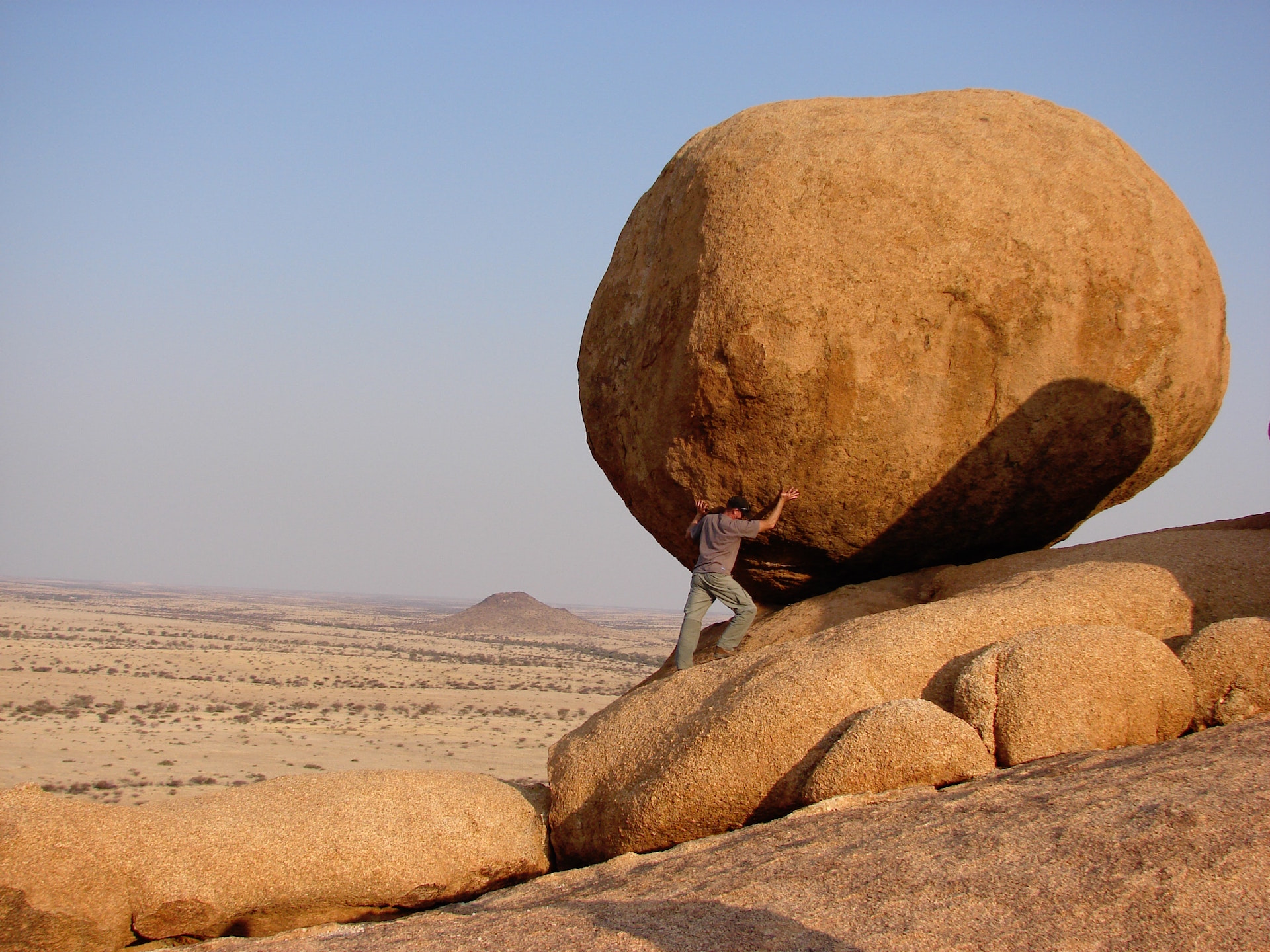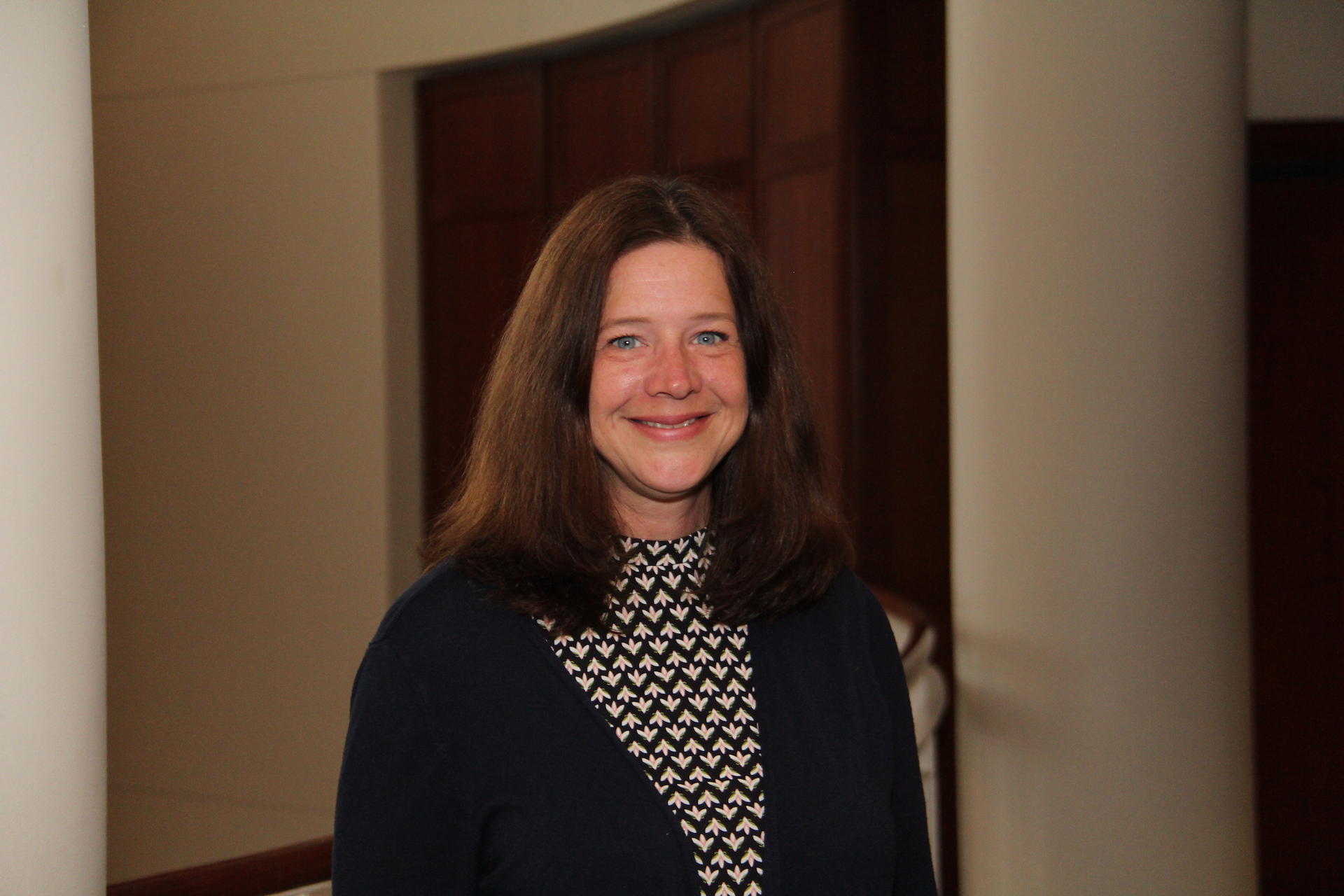COVID-19 has changed our world in so many ways that it can be difficult to remember what things were like “before.” We reached out to Dr. Claudia Lingertat-Putnam, chair of Saint Rose’s counseling department and an experienced clinician, to talk about what’s normal, what’s changed, and what we can do to make ourselves feel better during this time.
Why am I having such a difficult time?
You may be having a hard time grounding yourself and taking care of yourself in the moment. I’m talking about literally right now. It can be difficult to slow down when we’re so used to having lots of things to do and places to go and knowing what to expect. We’re used to moving at 100 miles per hour. Now many of us are stuck at home. Our current situation taps into an existential fear of the unknown and ultimately, the fear of dying.
You may feel disconnected in ways you haven’t experienced before. You may have lost your job, have a family member in the hospital or be sick yourself. The current situation adds even more stress to our lives! If you find yourself really struggling, consider reaching out to a professional counselor. Saint Rose’s Counseling Center is always available.
I hate feeling so anxious.
The way things are now, you might feel like you’ve lost control. You can’t rely on the old routine that you were used to. But that control is an illusion. You don’t really have control over anything that is not in this moment.
But we can choose how we think about what happens to us.
Keep in mind that some anxiety is healthy – it’s what keeps us from stepping out into traffic and being hit by a car – but if it gets out of control, it can be overwhelming. For some of us, anxiety is a habit, like an old friend. We become accustomed to worrying about everything.
Anxiety can be like a runaway train; we can chase it down the tracks, or we can observe it from the station. Right now, are you focused on all the things you can’t control, like the news about people dying or losing their jobs? Or are you thinking, “I’m glad no one in my family is sick. I’m glad we have plenty of food. I’m glad we have a safe place to live. I’m glad I’m healthy!”
So what can we do right now, in this moment?
We can breathe.
We can focus on our breath.
We can look around and notice things. The birds singing. The sunshine. The daffodils blooming. The people we care about.
You’re telling me to be grateful for this stuff?
No, and I’m not going to tell you to calm down or “get over it,” either.
Look, you’re under a lot of stress. You’re worried. You’re grieving. You’ve experienced a loss, whether it’s a loss of routine, a loss of a connection, a loss of a job, a loss of a family member or friend. I’m not going to say, “At least you have this….” or “You should be grateful” for anything. Whatever is happening is real for you. It’s legitimate.
What I’m asking you to do is reframe the way you see things. Despite everything going on in the world, is there something you feel grateful for?
It’s more of an in-the-moment appreciation for something. That’s going to be different for each person. Maybe you’re grateful that you have more time with your kids. Or that your pets are safe and healthy. Or that you have good friends who join you for a virtual coffee break.
It’s called “reframing.” Instead of seeing things the way you always do (like looking in your house from the same window) – the pandemic is asking you to look at your life from another point of view – a different window, the back or side door. You’re shifting your perspective a little bit.
But, really, before you can get there, you have to ground yourself.
What is this “grounding?”
It’s about remembering to use using coping skills you already have to calm yourself down. It might take some practice. Like anything else you want to be good at, you have to keep doing it to get better at it. It’s things like meditation, mindfulness practices, deep breathing, focusing on your breathing, starting your morning out with a routine, taking a quiet walk. Even using an app like Calm or Headspace for a quick meditation.
It’s a practice, a habit. Not a quick fix.
You’re shifting your focus. Think about washing the dishes. Now think about doing it mindfully. Focus on the warm water splashing on the plate, your hands touching the dish, moving thoughtfully in a circular motion. You’re really slowing down and focusing on the task at hand. You are being intentional.
What about spiritual advisors?
Connecting with someone in a faith-based community, talking to a priest or rabbi or imam, can be helpful for some. There’s a strong spiritual component here. The coronavirus is bigger than any one of us, so that connection to the larger universe – that can be nature for some people, or mindfulness, or our friends or family – can help us feel grounded.
I still feel overwhelmed.
The other thing I’d say is: Start small. Don’t start with an hour-long yoga class – start with a pose. But start somewhere. Take three slow deep breaths every morning. Start with two minutes of mindful meditation at bedtime.
Pick one thing, and then take one step toward that goal. As Lao Tzu said, “A journey of a thousand miles begins with a single step.” It can be paralyzing to think about the 1,000-mile journey. But if you take a step, you’ve begun.
Since it’s the Armageddon, I can eat whatever I want, right?
I hope you’re kidding.
Do take care of yourself physically. Make sure you’re on a healthy routine. That includes a good sleep routine (it’s easy to stay up all hours because you don’t have to get up early for work).
Eat a healthy diet, including whole foods, fruits and vegetables, complex carbohydrates. Watch the nicotine and caffeine.
Get enough exercise. This situation is affecting us all differently – some of my very active friends are finding even more time to work out. Others of us are gaining the “COVID 15.”
Basic goal tracking can help. There are cognitive-therapy techniques like food journaling. What are you eating in a day, how many cups of coffee are you drinking. This can help by making you more aware of what you’re doing or not doing.
Making a calendar and tracking goals can be helpful for some.
Once again, any one of these things is not going to fix the problem today, tomorrow, or next week. These are healthy habits that you have to practice, implement, and integrate into your life.
Sometimes I wish I could do something.
The way we respond to crises has to do with the way we’re wired biologically, the way we process trauma. It’s a very real thing to physically want to move, to assist, to do something, anything when we are in crisis. The pandemic has thrown the whole country into crisis mode. So, it can be hard to slow down and “just be.”
What can you do?
I have a good friend who normally travels the world and does yoga several times a week. Since the stay at home order, she hasn’t left her house, not even to get groceries, because her 80-year-old father with a heart condition lives with her family. She is not going to put him at risk.
I was really worried about her, but as it turns out, the focus on her dad is all it took. She’s doing great! Sometimes focusing on “the other” can help us focus less on ourselves and feel more grounded.
Sometimes you just have to ask somebody what they need. If your friend calls up and sounds distressed, maybe she wants you to just listen and be sympathetic. Maybe she wants to take a walk with you, six feet apart. You can ask, “What would be helpful to you right now?”
But there’s so much bad news.
It’s OK to turn the TV off.
I used to listen to the news constantly but realized it was creating anxiety for me. So now I listen once a day. I schedule time in, 10 minutes every morning. Then I turn it off and get on with my day.
We know from the research after the 9/11 terrorist attacks that having the TVs on all day, watching 24/7 coverage of the burning buildings and people jumping out of them was literally traumatizing.
It’s OK to set boundaries, to step away. It’s necessary! If you have a friend that calls up to complain for hours, it’s OK to say to yourself, “I have to go for a walk and not be around any negativity today.” You’re setting a boundary, but you’re still friends.
If you have young children, it’s OK to tell your partner or an older child, “I’m going to take a minute,” and step into your bedroom or the bathroom to take a deep breath by yourself. You’re not running away to California. You’re taking a minute.
They’ll figure it out. They’re resilient. You’re resilient.
I feel awfully fragile, though.
It can be hard to find a frame of reference. Most of us weren’t there for the 1918 flu pandemic, or air raids in World War II. We may have been too young to remember 9/11.
But there are adversities we’ve gone through. It could be your parents’ divorce, or the loss of a parent, or an accident you survived. These are horrible things, but you find a way to navigate through. Most of us can draw down into those wells and build resilience from those experiences. We have an immense capacity for resilience and connection, and I think that’s really powerful.
Instead of focusing on what you can’t do, focus on what you can do. Look at all the creativity coming out of this. There are orchestras playing together on Zoom, in perfect harmony. Are there things that you wished you had time for, before the Pause, and now you do? Is there a book you wanted to read or a project you wanted to start?
Find and do things that bring you joy, no matter how small. Find a way to connect with others. Focus on your strengths and what you can control. You will get through this. We are all in this together!
By Irene Kim





Comments posted on this site are held in moderation until approved by a site administrator. Vulgar, profane, obscene, offensive terms or personal attacks will not be tolerated.